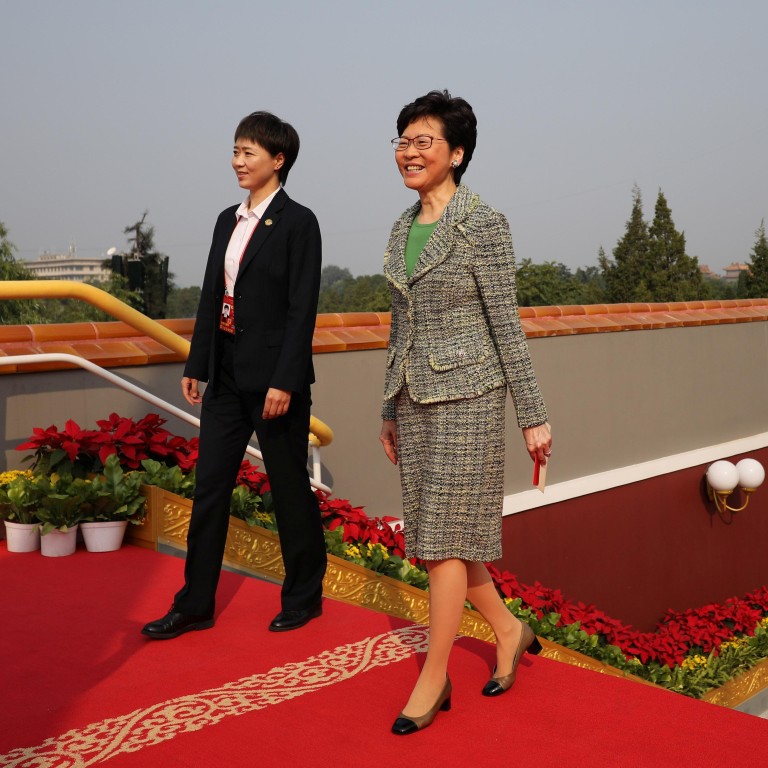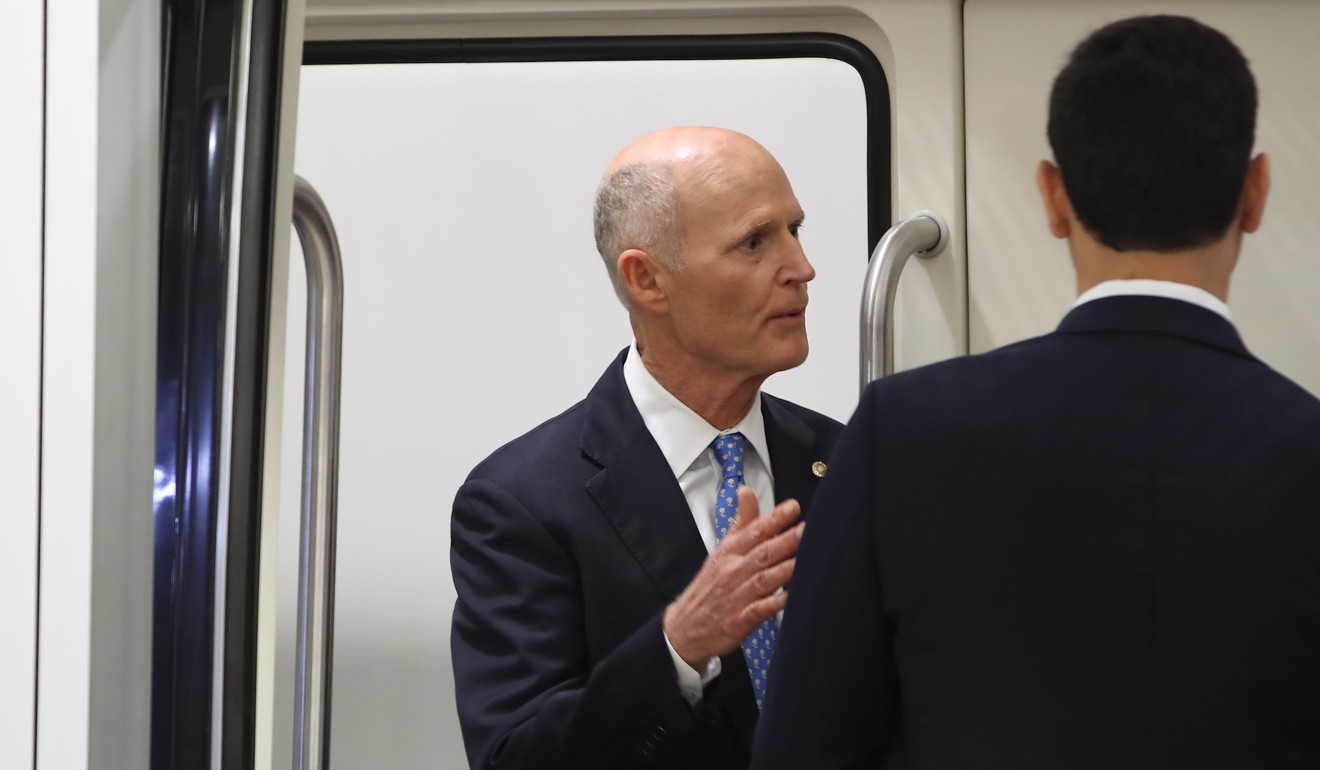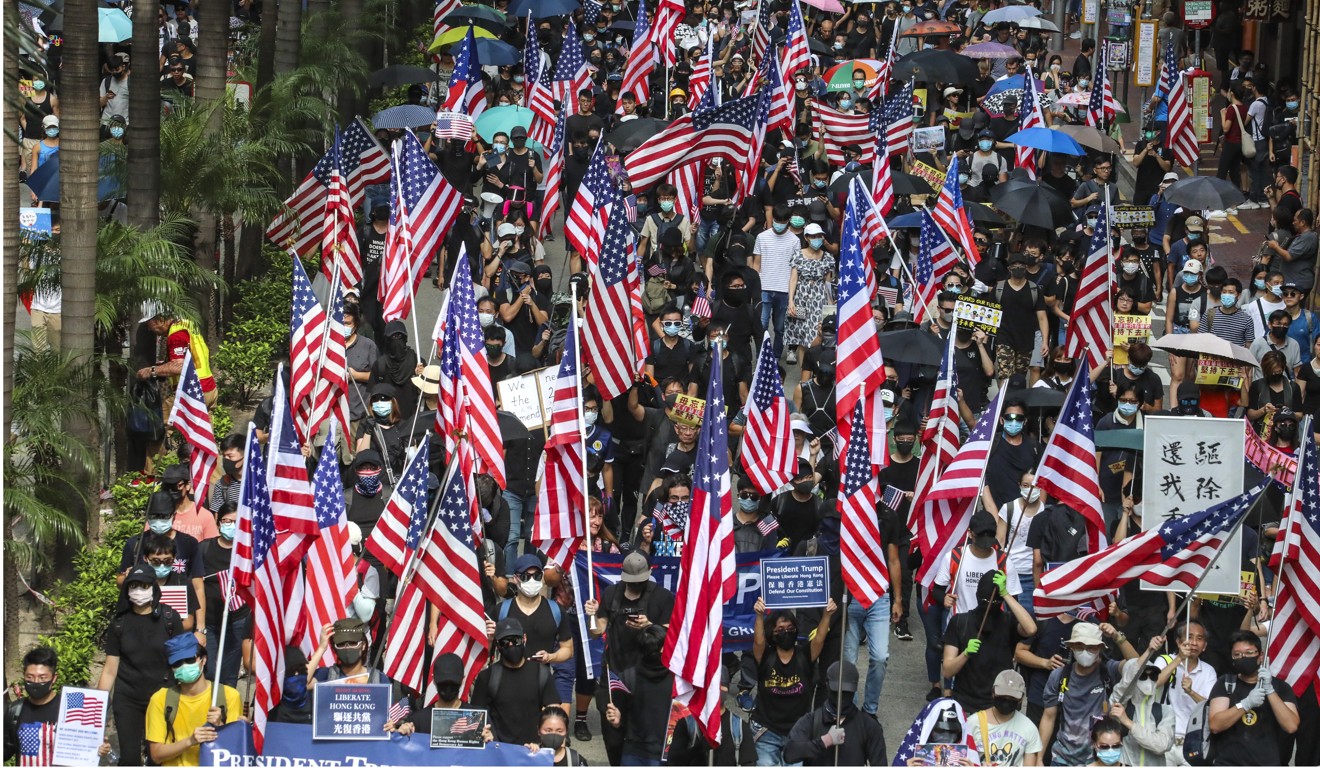
US Senator Rick Scott accuses Hong Kong chief Carrie Lam of being Beijing’s puppet
- Republican from Florida says city’s leader is ‘just another pawn in communist dictator Xi [Jinping]’s game of global domination’
- Lam’s inaction on protesters’ concerns ‘demonstrates how little she values the rights of the people of Hong Kong’, he says
A United States senator has accused embattled Hong Kong Chief Executive Carrie Lam Cheng Yuet-ngor of being a “puppet” of Beijing who does not value the rights of the people in the city she governs.
“Chief Executive Lam wouldn’t even answer basic questions about the rights of her people. I received a follow-up letter today from Chief Executive Lam filled with more empty words.”

The Hong Kong government also looks set to introduce a ban on people wearing masks at public assemblies by invoking an emergency law that has not been used in more than half a century.
Scott said that in her letter, dated October 1, Lam said the passage of the human rights act in the US would put more pressure on Chinese authorities to support democratic freedoms in Hong Kong and in turn lead to further uncertainty in the city’s business and investment environment.
That uncertainty “risks not only endangering our local economy but also weakening valued US economic and trade relations”, the letter said.

Lam said the US had a trade surplus of US$297 billion with Hong Kong over the past decade, and there were 1,400 American firms and 85,000 American citizens in the city, adding that the passage of the bill would also hurt US interests.
“Months of protests have taken a toll on our city. Having the US, our second-largest trading partner, introduce additional economic uncertainty to our economy is not the most effective way to address our societal challenges,” Lam said.
“While it is certainly not the US’ intent to see Hong Kong harmed, I fear that Hong Kong society and overseas business interests here risk becoming collateral damage with the passage of the Hong Kong bill.”

She said also that she had decided to formally withdraw the extradition bill that sparked the mass protests, would continue holding talks to tackle social grievances and support the work of the Independent Police Complaints Council.
But Scott was unimpressed, saying in his statement that Lam’s “inaction demonstrates how little she values the rights of the people of Hong Kong – even denying her citizens the right to protest peacefully”.
“Lam is just another pawn in communist dictator Xi’s game of global domination. It is disappointing that Hong Kong does not have a strong leader standing for them, but the United States is committed to this fight and won’t back down.”
The Hong Kong Human Rights and Democracy Act of 2019, which Beijing has branded as interference in its domestic affairs, moved through the Senate Foreign Relations Committee and the House Foreign Affairs Committee late last month, setting the stage for votes in both chambers in the coming weeks.

